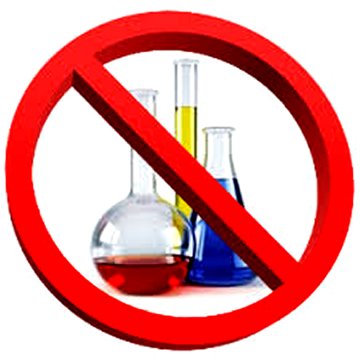Artificial Preservatives
by TVance | March 15, 2017 7:32 am
7 Preservatives That No One Can Pronounce and Why You Don’t Need Them
Gone are the days of universally organic grown foods that were free from additives, preservatives, and strange chemicals. Though organically grown foods can still be found today, they are not as common as they used to be or should be.
 [1]
[1]
Many people who wish to avoid the common, processed foods found on the shelves of local grocery stores are forced to either grow their own food or shop at natural, organic grocery stores, and farmer’s markets. Unfortunately, it’s simply a fact that it’s easier to shop and buy processed and preserved foods, but this needs to change.
One way to raise awareness for change and organically grown foods is to shed some light on the additives and preservatives used in everyday foods that can actually be harmful to your health and the overall wellness of your body. The following ten preservatives are those most commonly found in foods we eat even though they are not really necessary.
The 7 Most Common Preservatives That You Can Do Without
1. Ammonium Sulfate
This preservative is most often found in bread, but it is also found in cleaning supplies and garden fertilizers. The preservative is an inorganic salt used as an acidity regulator in many flours and bread. Though it is deemed safe in small doses by the FDA, it is not necessarily needed and is not found in fresh bread. You can eat bread sans-ammonium sulfate with the only difference being a shorter shelf life.
2. L-Cysteine
This preservative is made from human hair or duck feathers. Though it seems crazy, it is considered a natural protein as it can be digested as an amino acid. L-Cysteine is found in bread, cookie dough, and several other products. While this preservative is commonly used for specific health problems, it can also be found in everyday foods—why? It is merely an added source of protein which, let’s face it, can be swapped with just about any other natural source of protein. In addition, not much is known about long-term exposure to this preservative, so it seems safe to avoid it.
3. Butylated Hydroxanisole
Commonly referred to as BHA, this preservative is used as an antioxidant to keep foods, medicines, and animal feed from going bad. Unfortunately, some research suggests that it can lead to cancer in both humans and animals. Again, this is a matter of eating foods in a timely manner rather than letting them sit on the shelf for as long as you like.
4. Sodium Benzoate
This preservative is found in various foods and liquids such as vinegar, soft drinks, juices, and even hamburgers. However, it is also found in fireworks. This preservative is widely thought to be a carcinogen and can wreak havoc on the cells, depriving them of needed oxygen and nutrients. You certainly don’t need that in your body.
This preservative is found in various foods and liquids such as vinegar, soft drinks, juices, and even hamburgers. However, it is also found in fireworks. This preservative is widely thought to be a carcinogen and can wreak havoc on the cells, depriving them of needed oxygen and nutrients. You certainly don’t need that in your body.
5. Butylated Hydroxytoluene
Similar to BHA, BHT is another food preservative used to keep foods from going bad. However, this preservative is also found in products like cosmetics, rubber, and embalming fluid.
6. Sodium Nitrite
Sodium nitrite is used to preserve meat products—think bacon, lunch meats, and beef jerky. This preservative prevents the growth of bacteria on packaged meats and promotes the retention of its red color. It also adds a salty flavor to the meats. However, this preservative is also used in metal coatings and textile dyes, among other things. It would be safest to stick to fresh meats and avoid those packaged poisons altogether.
7. Titanium Dioxide
Though this chemical is used to block UV rays and protect your skin when in the sun, it is also found in many common food products. Milk, frosting, coffee creamer, and salad dressings all contain titanium dioxide as a whitening additive. Avoid this unnecessary chemical and stick to organic foods that can do without UV protection.
Though this chemical is used to block UV rays and protect your skin when in the sun, it is also found in many common food products. Milk, frosting, coffee creamer, and salad dressings all contain titanium dioxide as a whitening additive. Avoid this unnecessary chemical and stick to organic foods that can do without UV protection.
- [Image]: https://alternativeresourcesdirectory.com/wp-content/uploads/2017/03/artificial-preservatives.jpg
Source URL: https://alternativeresourcesdirectory.com/news/artificial-preservatives